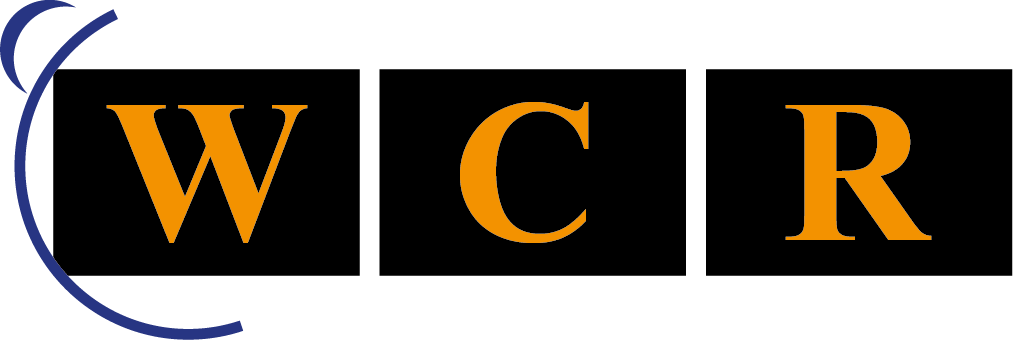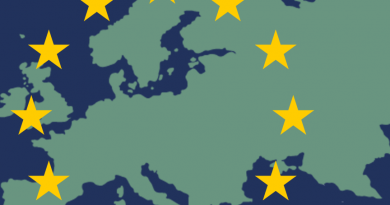The West must learn to understand power politics
Patrick van Schie is the Director of TeldersStichting, the Netherlands’ liberal think tank
The shock
The omens were clear: large-scale Russian ‘exercises’ without a defined end date on the Ukrainian border, troops deployed not only in Russia itself but also in its vassal state of Belarus near the Ukrainian capital Kyiv.
Even more alarming was the build-up of an excessive amount of military equipment, all in all ideally suited to the carrying out of an invasion. Add to this the denials from the Kremlin that any of this was happening.
At the same time, numerous Russian ships were arriving from other waters, including the Baltic, and converging in the Black Sea. American intelligence services predicted a Russian attack on Ukraine, but most of the government leaders in the West and countless experts dismissed the signs of jeopardy, and all expressed their shock when, on the 24th of February, Russia finally invaded Ukraine from the North, East and South.
Why were they so blind to the danger? For years, Putin had been clear on the subject. According to him, Ukraine was not a country but ‘a region’; and a region that belonged to Russia at that.
Moreover, as the Kremlin had affirmed in official documents, Russia has the right to interfere in any country the population of which is partly Russian. Putin had already shown that he is willing to suit the action to the word, not least with the invasion in Georgia in 2008 and in eastern Ukraine and the Crimea in 2014. Nevertheless, at the beginning of this year most of those in the West thought that things would not turn out to be that bad.
How can this be explained? It was partly due to the kind of wishful thinking there has always been; it won’t happen because we don’t want it to happen. The prospect of catastrophe is simply too horrific. Think of the atmosphere in Europe for most of July 1914.
Not only were populations everywhere happily celebrating their holidays without a care in the world, and many Western government leaders could not imagine a large-scale war until well into July. Even halfway through the month, political leaders in London were still more actively concerned with the Irish issue than the potential consequences of the murder in Sarajevo of Franz Ferdinand, heir to the throne of the Austro-Hungarian empire.
There is also a parallel to be drawn with the recent COVID-19 pandemic. As the disaster unfolded in China, many Western governments seemed to be behaving as if their own populations possessed a natural immunity to the virus. It wasn’t until mid-March that they woke up with a fright and started to panic…
Many countries blindly instituted lockdowns; after all, that’s what many other countries were doing. Quite simply, most governments just didn’t know what else to do.
The naivety
Wishful thinking, however, is only part of the explanation. In Western Europe in particular, the belief that power politics are old-fashioned has begun to prevail. Diplomatic consultation and right are the standard, and those few countries who chose not to adhere to this line are the exceptions that confirm the rule.
Typical of this way of thinking is the statement ‘Putin lives in another world’ made by German chancellor Angela Merkel in 2014.
It is not Putin, however, who is living in another world; the West is living in another world. Western leaders are trying to replace power as the decisive factor in mutual relations between countries with treaties and consultation (which incidentally often hide other ways of exercising power).
The belief in Western Europe is that European integration and international trade are automatic promoters of peace. Not only is that an overly optimistic assumption in itself, assuming that – apart from the odd exception – the rest of the world feels as you do, demonstrates a failure to understanding how other people think.
Much of the world continues to think in the terms that have determined international relations for centuries: in the end, it is power that counts. The powerful parties are those who are well prepared and effectively capable of deploying their military resources.
The fact that Western leaders have failed to realise that African leaders still think along those lines is one thing, although it does present an obstruction to the effective development of such countries. Quite another and more serious is the misconception that major international players such as China and Russia cannot see their way to evading Western standards in the international political arena.
It is this very misconception that accounts for the failure to understand that the military build-up of Russia and communist states like China does not have a defensive objective per se, but constitutes, for these countries, a weighty instrument to effectively enforce their demands. Or rather, to quote Von Clausewitz, that the Chinese and Russian armed forces are instruments with which to conduct politics using other resources.
The inability – and sometimes also unwillingness – in the West to actually explore the way of thinking which prevails elsewhere also makes many parties blind to what really counts for Xi Jinping and Putin. Clearly human lives are of no account.
It must already be obvious to anyone simply from studying their criminal regimes that these dictators couldn’t care less about the lives and sorrows of other people. Why should Xi Jinping or Putin care about the fate of people elsewhere when they so ruthlessly suppress their own populations?
The fact that the Russian army in Ukraine deliberately attacks so many civilian targets is indeed shocking, but it should not surprise us.
Preparation for war is not an obsolete idea. The purpose of this preparation is deterrence, but also, whenever required, the defence of a truly free democracy
Something else which is not ultimately of great importance in countries like Russia and China is the economy. It is therefore an illusion to think that Xi Jinping or Putin will shy away from certain actions because trade will suffer as a result. Not only can the Russians and Chinese transfer their trade relations from the West to other regions – there are plenty of regimes willing to fill the gap – but above all, the economy is subordinate to politics in their eyes.
For them, trade is not exclusively an economic exchange, it is also a means of acquiring political clout. Moreover, economic interaction is actively used by the regimes in Beijing and Moscow to engage in espionage and to cheat, weaken and undermine the free world using digital resources.
Loss of trade and potential damage to the economy are totally acceptable to China and Russia if they are compensated by political gain, such as an extension of the territory under their control or an enhancement of prestige in their own country.
When it comes down to the nitty-gritty of the issue, trade, and economic and cultural relations in general, also constitute a continuation of politics using other means for such countries.
Actions rather than words
In reaction to the Russian invasion of Ukraine, most of the European NATO member states finally decided it was time to raise their defence expenditure to the level to which they had committed themselves eight years ago following the Russian annexation of Crimea in 2014: viz. 2% of their GDP.
With the exception of a few countries, most European governments had remained convinced since the fall of the Berlin Wall that there could never again be a war on their continent, and so the ‘peace dividend’ of the post-Soviet era could continue to be cashed in.
In part, this boiled down to sponging on the American guarantee of safety (nothing new, because the ‘burden sharing issue’ had already prevailed at the time of the Cold War), but it also emanated partly from the sincere belief that Europe would, from that time, be safeguarded against a war of any significant scale.
In that context, the civil war in the former Yugoslavia was considered to be a convulsion from a past that Europe had in fact settled, for the most part.
Have the European countries now learned their lesson? The decision to substantially increase defence expenditure seems hopeful, but what really matters is whether the action will be suited to the word, and also whether it will be sustained. After all, the intention was already there in 2014, but intentions are of little value if they remain without consequences.
Moreover, the actual strengthening of Western defences is not merely a matter of money. Will the additional defence expenditure primarily be spent on higher salaries and pensions for armed forces personnel (which may definitely be necessary in some cases) or on a sufficient volume of new, effective military resources (including maintenance) and to improve operational proficiency?
It is gratifying that the Americans are expanding their military presence in Europe and that the rapid deployment force of NATO is being significantly reinforced. This also includes the storage depots in those Eastern European member states near Russia already holding military equipment that is readily available on the ground in the event of a serious crisis.
Nevertheless, this is still less than the Baltic States in particular have demanded. They are insisting on a ‘forward defence’, meaning the presence of sufficient troops from other NATO countries stationed on their territory as to represent such a deterrent that a Russian invasion of Estonia, Latvia or Lithuania would be virtually unthinkable – even for Putin.
As long as NATO troops are not present in the Baltic States in far greater numbers, there is a fair chance that the Russians could conquer these states, after which the NATO response would have to be focused on regaining territory rather than defence, inevitably leading to the misery of a war waged on Baltic soil.
Thoughtlessness
In the immediate aftermath of the brutal Russian invasion of Ukraine, that country has enjoyed a huge wave of sympathy in Western Europe. This is understandable, but since then, many European governments have continued to allow their attitude towards the country to be dominated by that sentiment, which is not sensible.
Ursula von der Leyen, President of the European Commission, almost immediately offered EU membership to Ukraine. This has since been agreed by the member states, so Ukraine now has a real prospect of becoming a member of the EU.
Admittedly, candidate membership does not guarantee that Ukraine will be admitted in the near future. The question remains as to whether or not the obstacles to membership remain too high to be overcome, and whether or not the EU can stomach Ukrainian membership.
The battle between Russia and Ukraine is generally represented as a struggle between dictatorship and democracy. It is beyond any reasonable doubt that Russia has developed into a dictatorship in all respects. Then again, some very rose-tinted spectacles are required to perceive Ukraine as a full democracy.
The Democracy Index of The Economist, an objective method of classifying countries published two weeks before the invasion, denoted Ukraine as a ‘hybrid’ regime. This means that the country features a mixture of democratic and authoritarian characteristics.
For many, the hope is that things may well change for the better, but compared to ten years ago, Ukraine has gone in a negative direction on the Democracy Index. Added to this is the fact that the country is in 122nd position on the Transparency International’s Corruption Perceptions Index, hovering between Sierra Leone and Zambia, and ranked only 14 positions above Russia itself.
Objectively, for these reasons alone Ukraine has a very long way to go before it will be able to meet the basic conditions for EU membership. Furthermore, there is no reason to assume that the direction of travel will automatically be positive. Ukraine does not have a history of democracy and good governance.
Sad though it is, the fact that the country is now at war is not going to make a move in the right direction any easier. This means that full membership will either have to wait for many decades, which will cause bitterness in Ukraine, or that the EU will have to relax its minimum conditions, as a consequence of which an unfit country could become a member. The latter option would not be to the benefit of the EU’s stability.
Ukraine is a poverty-stricken country. In view of the size of the country, this will constitute a heavy additional financial burden for the EU. In this respect too, the war can only make the situation worse rather than better.
Other than that, the conflict will have to be settled before Ukraine can become a member; this will entail more than just an armistice. It is hard to imagine how a sustainable peace between Ukraine and Russia can be realised in such a way that neither one of the two parties will want to retaliate.
Bear in mind that Putin is definitely not the only one in Russia who thinks that Ukraine is not entitled to an autonomous existence.
NATO and the EU are avoiding a direct confrontation with Russia, and rightly so. Why would we risk the disaster of a nuclear war with Russia now when we failed to come to the aid of the Hungarians when they craved freedom for their country in 1956, the Czechoslovakians in 1968 and the Poles in 1980-81?
Is it fully understood what Ukrainian membership of the EU would mean in terms of security? Section 42, paragraph 7 of the EU treaty stipulates that a member state that is attacked by force of arms must be assisted by the other member states using any resources that are available to them.
In other words, once Ukraine is an EU member, any new Russian attack would mean that the entire EU was automatically at war with Russia. Are we really ready to risk an automatic world war in the future when we are not prepared to do so in the current situation?
Would the majority of EU residents go along with that? Do they realise that an EU membership for Ukraine entails this risk? Do the government leaders within the EU realise this? Or are rational politics based on national interests being superseded here by a rash sentimental gesture?
Learning lessons
The above does not mean that we must shy away from the risk of war under all circumstances. If we were to do that, we would give free reign to aggressive dictatorial regimes. Western politicians must learn to understand the way of thinking that still prevails in large parts of the world, especially in major powers such as China and Russia.
Understanding what motivates those in power in such countries by no means implies acceptance of what they claim. Such an understanding is, however, a condition of being able to resist their claims to power.
This starts with the realisation that, for countries such as Russia and communist China, the economy is subordinate to political claims to power.
Furthermore, the ‘language’ that they understand best of all is that of military power. They see the Western propensity to neglect this as a weakness. They also believe that we in the West are not prepared to deploy our military power and suffer major losses.
We must demonstrate our readiness to protect fully fledged, stable liberal-democratic countries. This means credible military deterrents and – should these fail – concrete military assistance.
Obviously, this applies first and foremost to all NATO member states. The task of military defence must be taken seriously, and increasing defence expenditure to 2% of GDP is a minimum prerequisite. Preparation for war is not an obsolete idea; it is, and will unfortunately remain, a dire necessity, even in the 21st century. The purpose of this preparation is deterrence, but also, whenever required, the defence of a truly free democracy.
Taiwan, ranked number 8 on the Democracy Index, is just such a stable liberal democracy. The country is not recognised by communist China. China has invested substantially in the build-up of a modern military apparatus of power, and not without reason; Beijing is also using this apparatus for the systematic intimidation of Taiwan, as it has recently demonstrated with its extensive and threatening military ‘exercises’.
Moreover, Xi Jinping has publicly announced that he wants to accomplish ‘reunification’ within one generation. We shouldn’t be oblivious to these omens. Neither should we look away from the danger because we do not want to jeopardise our trade interests in communist China.
There are higher values, such as the defence – if necessary – of a stable free democracy. Taiwan is much more deserving of our full military support than is Ukraine.




